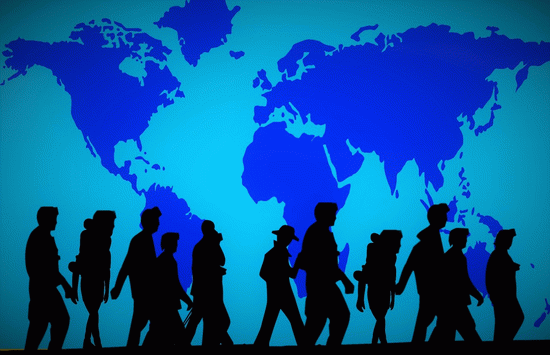Food, Water, Shelter, Wi-Fi: How Microsoft Is Helping Refugees
/
More than 65 million people worldwide are now displaced from their homes, escaping conflict or persecution—the equivalent of the population of France. Over 21 million of those displaced have crossed international borders and are classified as refugees, creating a historic global crisis.
We've been covering philanthropy's response to this crisis for over two years, including some recent good news—at last!—that private giving for refugees soared in 2015.
One encouraging trend, here, is growing corporate involvement in assistance to refugees. Beyond such longtime players in the humanitarian crisis space as UPS, IKEA, and Western Union, we've reported on companies like Vodafone, Google, and Cisco stepping forward to lend a hand.
Related:
- Finally: New Data Shows That Private Funders Have Stepped Up Giving for the Syrian Crisis
- How this Corporate Funder is Narrowing the Digital Divide for Refugees
- Connect Everything: A Tech Company Rises to the Refugee Challenge
- How Do Chromebooks Help Refugees? Google.org Has an Answer to That
Now, some companies and their philanthropic arms are aiming to do more.
In a recent call to action, the Obama administration announced that 15 companies have committed to help refugees in three impact areas: education, employment and enablement (think internet service, bank accounts and infrastructure projects). Big corporations such as Accenture, Google and Mastercard are among the founding members of this private-sector push. Meanwhile, Microsoft Philanthropies, the software giant’s charitable giving arm, has kicked in $20 million in cash grants and products to facilitate refugee relief efforts.
Microsoft Philanthropies has partnered with more than a dozen nonprofits to deliver support to refugees around the world. Grants to NetHope, Mercy Corps, and the International Rescue Committee have helped those organizations offer food, water, housing, medical care, legal services and trauma counseling to Syrian refugees. Microsoft is also funding education initiatives, such as its YouthSpark Schlaumause program, which provides Arabic-to-German language training to 30,000 displaced children now living in Germany.
As we've reported before, an important aspect of private sector involvement in responding to the refugee crisis is drawing on the specific expertise of corporations. Vodafone and Cisco, for example, have both provided refugees with tech needs. And it would make sense that Microsoft is also engaging in this way, making computers and the internet available to refugees.
“[T]echnology has essentially become a new form of aid as it enables communication between refugees and their families, coordination within and between aid agencies, access to information about migration routes, and the rebuilding of refugees’ lives,” says Jane Meseck, director of global programs for Microsoft Philanthropies.
How this plays out in practice can be pretty moving.
After a bomb killed his wife, 74-year-old Atallah Taba fled his home in Damascus and walked hundreds of miles before ending up in Cherso refugee camp in Greece. When Microsoft partner NetHope installed Wi-Fi in the camp, Taba was able to contact his daughter for the first time in two years to let her know that he was still alive. Internet connection has become a lifeline for refugees, according to Meseck. Technology is enabling displaced people to communicate with their families, but also to apply for asylum online and to develop skills to gain employment.
Microsoft is a big funder of programs across the United States and worldwide. In 2012, the company launched a $500 million global initiative called YouthSpark to improve computer science education. It renewed the commitment with an additional $75 million in 2015, and earlier this year handed out a round of grants to 100 nonprofit partners in 55 countries.
Related:








